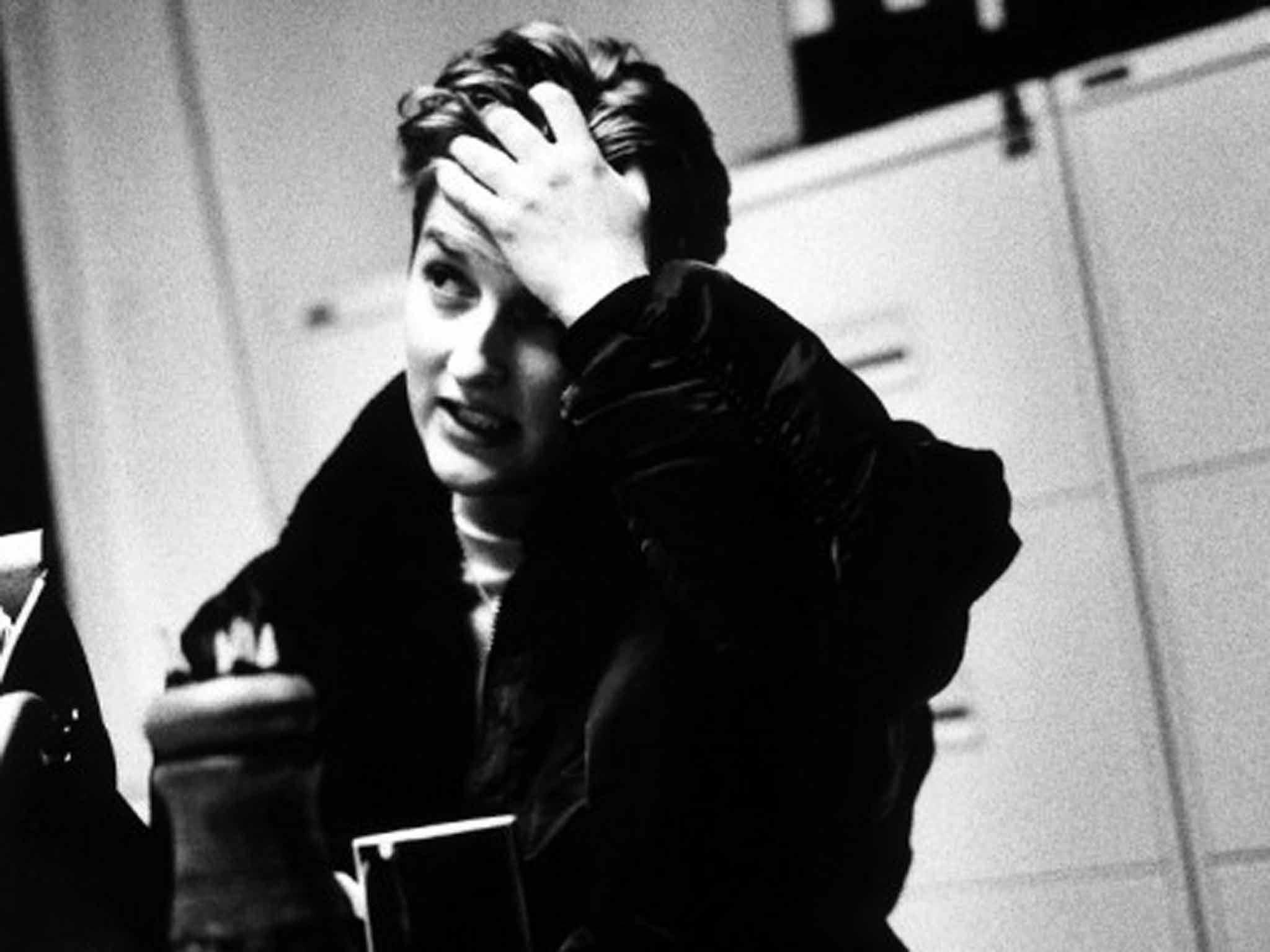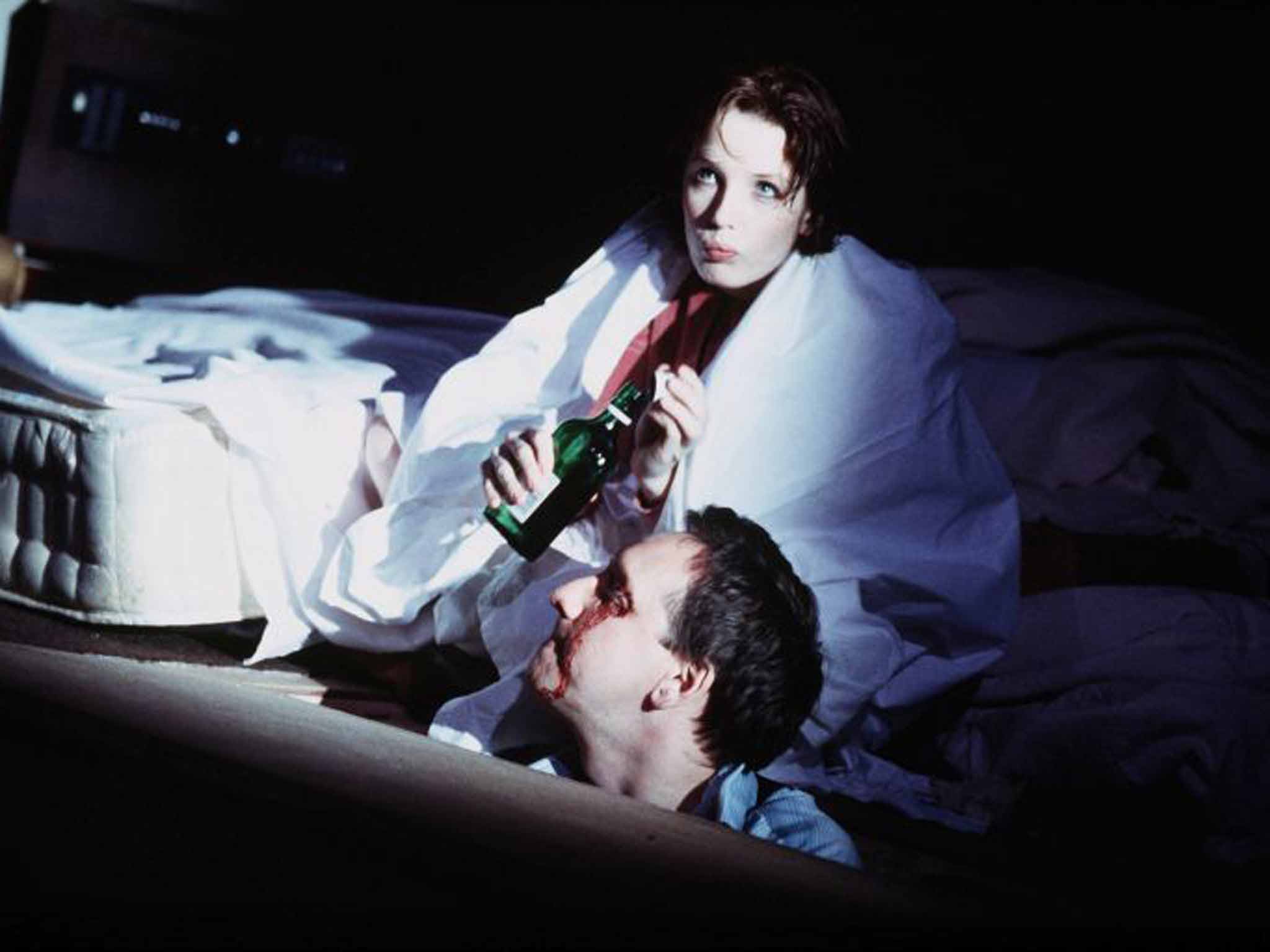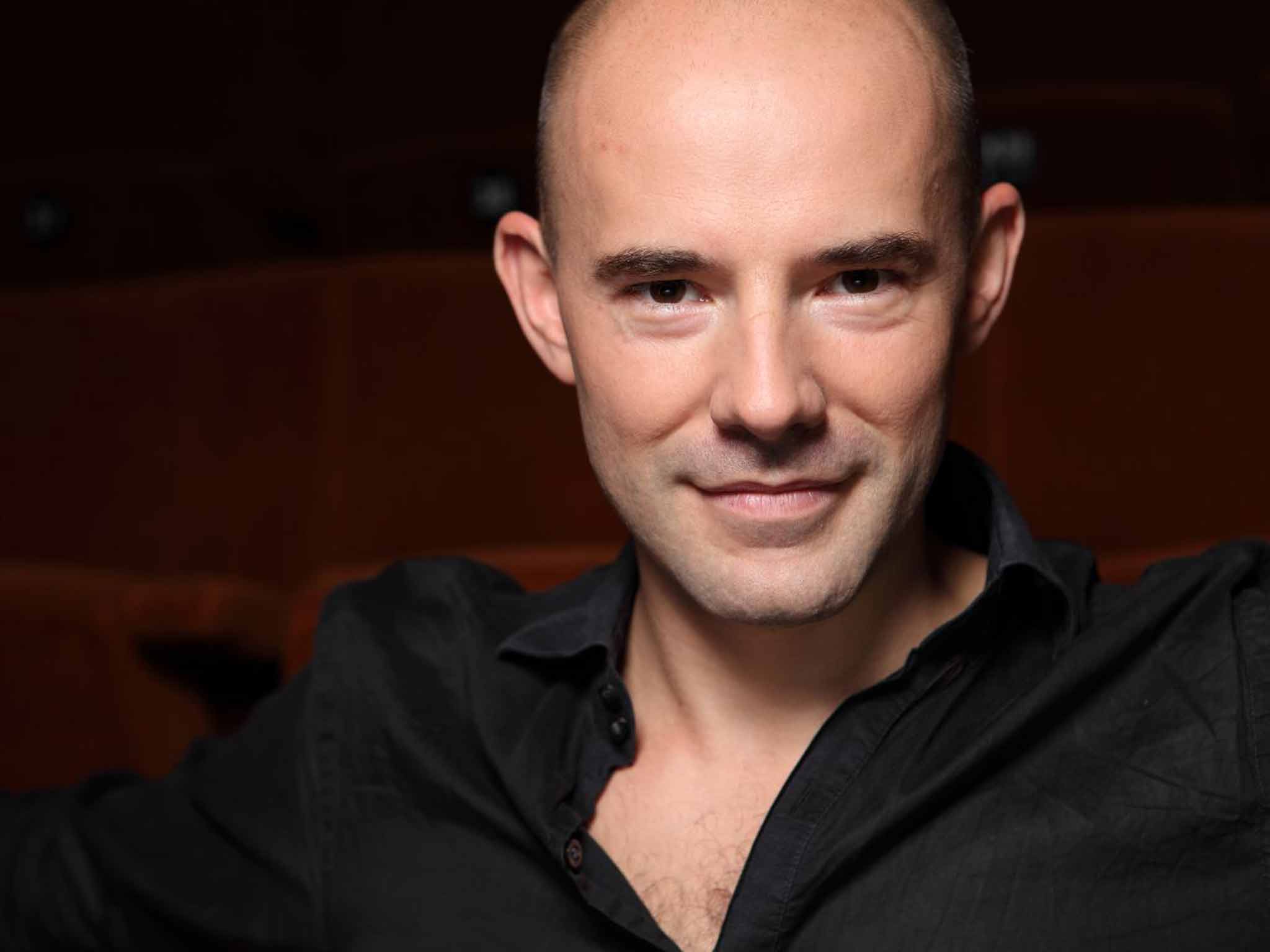Sarah Kane: Why the iconic playwright who committed suicide is as controversial as ever
Daniel Evans was hooked on the work of the provocative dramatist, who committed suicide in 1999. Now he's about to stage a season of her controversial plays in Sheffield

Your support helps us to tell the story
From reproductive rights to climate change to Big Tech, The Independent is on the ground when the story is developing. Whether it's investigating the financials of Elon Musk's pro-Trump PAC or producing our latest documentary, 'The A Word', which shines a light on the American women fighting for reproductive rights, we know how important it is to parse out the facts from the messaging.
At such a critical moment in US history, we need reporters on the ground. Your donation allows us to keep sending journalists to speak to both sides of the story.
The Independent is trusted by Americans across the entire political spectrum. And unlike many other quality news outlets, we choose not to lock Americans out of our reporting and analysis with paywalls. We believe quality journalism should be available to everyone, paid for by those who can afford it.
Your support makes all the difference.During the winter of 1997, I was playing Peter Pan at the National Theatre in London when a script arrived for me at the stage door. It had come from the Royal Court Theatre, which had decamped to the Duke of York's Theatre while its Sloane Square home was being refurbished. I was excited.
I'd desperately wanted to work at the Court. Under the artistic directorship of Stephen Daldry, its programming had been dangerous, subversive and impactful. A new generation of British playwrights were exploding on to the scene with fearless and uncompromising voices – and I wanted to be a part of it. I ran to my dressing room, ripped the envelope open and read the accompanying letter. The play was called Cleansed and the playwright was Sarah Kane.
Around two years earlier, I was working for the Royal Shakespeare Company at Stratford and I remember reading the reviews of Blasted, Sarah's first play. The reaction it received in the press was extreme. It made front-page news in the Daily Mail and well-respected critics were calling it "filth". The play is set in a Leeds hotel room, where an older male journalist is attempting to seduce a young woman. It sparked many a backstage discussion among RSC actors and some even used words like "gratuitous" and "unnecessary". As if in defiance of the more conservative attitudes, someone had posted an article by Edward Bond on the noticeboard. In it, Bond not only defended the play but called it the most important play on in London.
For many actors (and I think I was one of them), the grass is always greener. There's always someone who's doing better than you, someone whose career you envy, someone who's always getting "your" jobs. Here I was, working at our two flagship organisations, the SC and the NT, wishing I was at the Royal Court. I was at the heart of the establishment performing in Shakespeare and J M Barrie, wishing I was performing in Kane or Ravenhill, wishing I was part of the anti-establishment movement, wishing I could be part of a theatre that jolted people into re-evaluating their values and identity. I wanted to be on the front line.
And now, between a matinee and an evening performance, here was a script. I remember the moment so clearly, as the feelings it aroused have rarely visited me since. I devoured the play in 20 minutes or so (Cleansed is a quick read and a challenge to watch). Despite the play's brutality – it's set in a makeshift concentration camp, where a sadistic guard tortures the inmates – the play's underlying theme is the link between love and human survival. I was profoundly moved and knew there and then with every part of my being that I had to do it. I just had to nail the audition.

In an office above the Ambassador's Theatre, among piles of scripts, I sat with James Macdonald (the director) and Sarah (the playwright herself), who was going to read with me. I was overwhelmed and I felt stupid. This was the team that created Blasted and, despite not seeing that production, I realised that I had been unconsciously influenced into thinking that the author must be some raving, ranting, hard-edged ball-breaker. And here in front of me was a rather sweet, funny, impish, wry and beautiful young woman and a tall, thoughtful and kind man with a forensic eye for detail. They shared jokes and teased each other in an innocent, childlike manner.
The audition scenes required great imagination. There's a scene where Robin, the character I eventually played, is force-fed a box of chocolates – a present he has bought for a new inmate called Grace, whom he loves. The experience of consuming Grace's present is so traumatic for Robin that he wets himself. Luckily, I had learned the dialogue and we read. I remember, even then, that Sarah's acting style was unadorned and raw. There was no acting. She was barely doing anything and yet I was being infected by her intention in a very palpable and powerful way.
Months later, having got the job, we were rehearsing in a freezing room in south London. Sarah visited from time to time, sometimes with an alteration to a line. She'd want to change a full stop to a comma. Or change an "a" to a "the". Detailed, considered, minute shifts of tone, language, punctuation which seemed to reveal even deeper facets of the situation, scene or character. I was in awe. As part of our research, Sarah and I visited the Maudsley hospital to talk to some patients there, before going back to her Brixton flat for toast. Conversation wasn't always easy. Small talk was pretty minimal. It was the first time I'd worked so closely with a living writer and I was desperate to seem intelligent and knowledgeable. Sarah, I'm sure, wouldn't have given a damn.

During the final week of the run of Cleansed, our leading actor injured her back during one of the flying sequences. The performance was in jeopardy and we all thought we might close early. Then Sarah decided to play the part herself. She learnt the lines and went on with almost no rehearsal – and she blew us all away. She was fearless and connected. The performance required her to dance, to fly, to remove all her clothes – and she did it without blinking.
Early in 1999, I was back at the National – more Shakespeare – when the stage manager, Trish Montemuro, came to tell me the news that Sarah had taken her own life. The blow was double-edged. There was the personal loss and there was the loss to the theatre. Sarah wrote five plays and a short film called Skin. Now, as artistic director of Sheffield Theatres, I feel so proud that we're producing a complete works season. We're producing full productions of Blasted, Crave and 4.48 Psychosis, and readings of Phaedra's Love and Cleansed, and we're showing the film. It's a risky thing for us to do, as the plays' powerful provocation remains as potent now as when they were written. But, Sarah, this is in your honour.
Daniel Evans is the artistic director of Sheffield Theatres, where the Sarah Kane season runs from 4 February (0114 249 6000)
Join our commenting forum
Join thought-provoking conversations, follow other Independent readers and see their replies
Comments